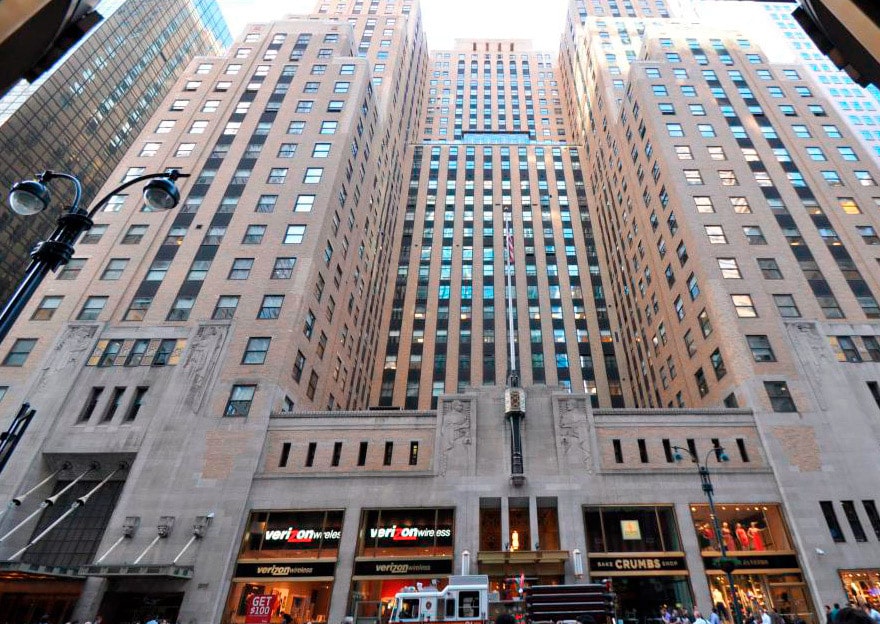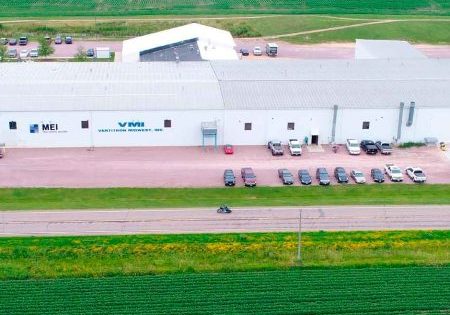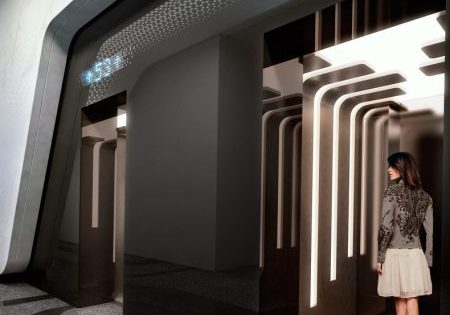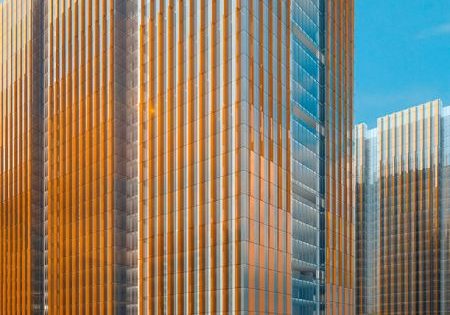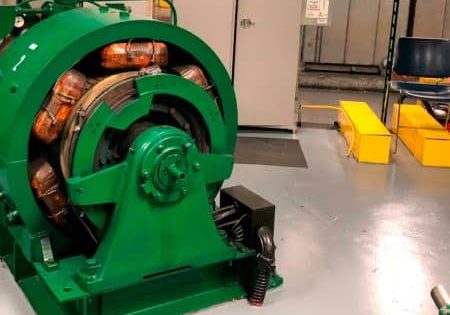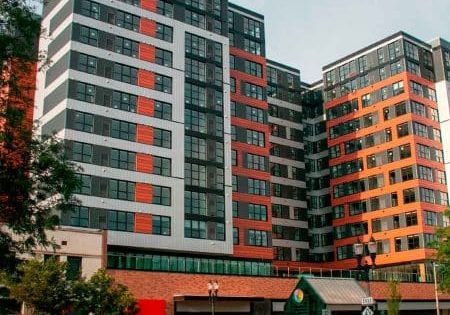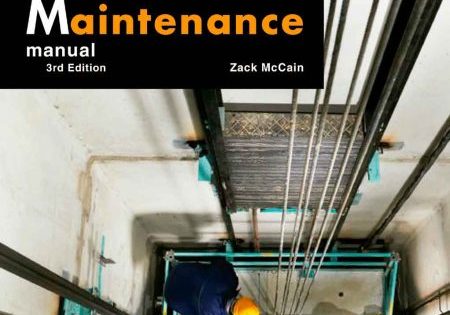NYC’s largest independent says it’s thrived by sticking to core values of safety, quality and integrity over the long term.
TEI Group is a privately, independently owned shop with more than 300 employees that provides elevator service, installation and modernization to Greater NYC. Now in its 30th year, it works from two offices: the main one in Long Island City and a satellite office near Penn Station. In telling a bit of TEI’s story, your author spoke with Managing Partner/President Mark Gregorio, Partner/Executive Vice President, Operations Michael Staub, Senior Vice President Environmental Health and Safety Ray Downs, and Vice President Sales and Marketing Larry Saccente.
Projects
The company has been involved in many high-profile projects. The first that sticks out in Gregorio’s mind is 420 Lexington Avenue, where TEI modernized 34 overhead gearless elevators with new machines, controllers, cabs, door-operating equipment and fixtures in 2008-2009. Next is 111 Eighth Avenue: a full modernization of the massive building’s vertical transportation system that involved 12 new gearless traction elevators, helping transition the 2.9 million ft2 into a campus for more than 5,000 workers. The original 12 passenger elevators are also being modernized with such technology as AC variable-voltage, variable-frequency motors and drives with nonproprietary destination-dispatch controls. Additionally, TEI was called back to the building this year to install a holeless passenger retail elevator.
Another popular modernization job talked about around the TEI headquarters is that of the landmark Plaza Hotel in 2006 during its extensive refurbishment (which, overall, lasted nearly three years). The scope included modernization of nine traction elevators, and installation of three new traction elevators, 10 hydraulic elevators and three residential elevators.
“All principal owners are actively engaged and working in and on the business every day. Our workforce remains our greatest strength, and the culture of continual learning and development is respected throughout the industry.”
— Managing Partner/ President Mark Gregorio
TEI is also proud of its installation of a Gala Systems spiral stage lift at 250 West 55th Street Spyscape, an interactive spy museum. The first of its kind in NYC, this lift can accommodate 50 people on their way to the exhibits. In addition to the complexities of design and installation of this specialty lift, Wayne Locker, TEI director of technical support, worked extensively with Rick Sayah of VDA to incorporate safety features required by the NYC Department of Buildings (DOB).
Currently, TEI is working on repositioning the elevators at the historic Waldorf Astoria New York (ELEVATOR WORLD, March 2019). This involves installation of 14 units, modernization of 14 more and dismantling of 17. It is modernizing the elevators at the 600-ft-tall, 1.7-million-ft2 class-A office tower 1166 Avenue of the Americas, as it is on another repeat-customer job at 425 East 58th Street. Twenty-three elevators are being modernized at 603-ft-tall 590 Madison Avenue (also known as the IBM Building). Finally, it services the corporate offices of SL Green and Vornado.
Trends
Gregorio said work is ongoing on NYC DOB door-lock monitoring compliance (required by 2020) and unintentional car movement upgrade compliance (required by 2027) on elevators throughout the city. “This has fast-forwarded many modernization projects, as these upgrades would be included, thus recognizing potential savings to the client. The modernization sector is very busy as a result,” he said. Destination dispatch is the biggest trend in which TEI is involved, and the high-rise residential rental sector continues to be very strong.
More generally, TEI sees “reurbanization” across NYC, with the younger generation creating market demand for rental inventory within the five boroughs and beyond as they return to the city. “We’re seeing double-digit growth as an effect of this,” Gregorio said. Likewise, gentrification is also happening on a larger scale. “It is not uncommon these days to find rental buildings with 1,000 apartments under construction,” he added. “These projects can contain at least 10 elevators.
Advantages and Opportunities
TEI feels it offers the advantages of large company policies, procedures and scale without the bureaucracy. “All principal owners are actively engaged and working in and on the business every day. Our workforce remains our greatest strength, and the culture of continual learning and development is respected throughout the industry,” Gregorio said. “Our guys can handle all types of equipment.”
TEI can service almost any control system, including many from the OEMs. When asked about machine-room-less (MRL) elevators, Gregorio explained:
“The MRL elevator was designed to replace the low-rise hydraulic market but was pushed beyond the original intention. Its entry into the mid-rise market provides unfavorable service conditions for technicians, but these are being addressed by several jurisdictions.”
When looking at the future of the Greater NYC, and overall U.S., elevator market, Gregorio said all indicators are positive, and they look forward to continued growth. He sees that demand for new housing and advancements in technology continue to add efficiency, improve user experience and create opportunity for modernization. He also gleans optimism from Warren Buffet, who has said the U.S. economy has continued to expand since 1776.
Speaking of expansion, Gregorio said TEI is seeking likeminded quality companies that may be positioned for acquisition as it brings its plans to expand along the Eastern Seaboard to fruition. “We’ve grown a lot over the past seven years, thanks to the good economy, and have been doing a lot of hiring,” Downs added. It is now among the five largest independent companies in the U.S. market and the largest in NYC.
Reasons for Success
The company has grown to serve all five boroughs of NYC, as well as New Jersey, Westchester and Long Island. It attributes this success to several aspects and thanks the nonproprietary manufacturers of the equipment it uses. These strategic partners include MCE, the Vantage family of companies, Monitor, EPCO, Torin Drive International, KEB, MVT, Peelle, Magnetek and Claddagh Electronics, and TEI’s international suppliers, Anlev and Maspero. “We extend a ‘thank you’ to the elevator consulting community here locally and across the U.S. We work closely with the consultants for third-party witnessing of mandatory elevator safety tests, and on large construction and modernization projects. Close cooperation helps bring a successful project to fruition on time and on budget,” Saccente added.
TEI is proud to be a member company of the National Elevator Industry, Inc. Some of its other affiliations are with the Building Owners and Managers Association International, Building Trades Employers Association of NYC, the New York Building Congress and the Staten Island Economic Development Corp. Downs said that such relationships within the NYC skyline have enabled TEI to prosper, while the company works closely with the NYC School Construction Authority and the Department of Design and Construction for the NYC Department of Education.
“Core values were established: safety, quality and integrity. But a company must live by its values, or they will become simply window dressing.”
— Senior Vice President Environmental Health and Safety Ray Downs
Streamlining Leads to Safety, Success
Ray Downs “is by far the most accomplished and respected executive in the industry with a laser focus on safety,” Gregorio lauded. “There were many years where each company adopted their own respective safety training program and trained their workforce in a particular way.” However, when technicians moved from company to company, the training no longer applied. However, Downs set up training on procedures common to all elevators, regardless of the manufacturer. TEI calls them “Ray’s Commandments.” He drew on them when helping write the National Elevator Industry, Inc. Field Safety Committee’s “Safety Absolutes” (ELEVATOR WORLD, May 2017). The company has departments not only dedicated to health and safety, but also to regulatory code changes, category 1 and 5 testing, violations and training.
TEI is proud to be a member company of the National Elevator Industry, Inc. Some of its other affiliations are with the Building Owners and Managers Association International, Building Trades Employers Association of NYC, the New York Building Congress and the Staten Island Economic Development Corp. Downs said that such relationships within the NYC skyline have enabled TEI to prosper, while the company works closely with the NYC School Construction Authority and the Department of Design and Construction for the NYC Department of Education.
Downs, a 30-year veteran of the industry, gained most of his experience as Northeast regional environmental health and safety manager, field operations manager and doing project management at Otis. When hired to oversee TEI’s safety in 2012, he first introduced The Elevator Industry Field Employees’ Safety Handbook to all field employees. He calls it “vital to the industry,” adding, “There are still so many companies that don’t have safety programs. The handbook touches on all elements of safety.” He said good employees and safety standards are a must to succeed; TEI has embraced this and instituted gradual changes to meet the demands of operating a large business. He shared:
“Gregorio and Staub are owners who ‘get it.’ They elevated company safety to a level so important that you could not work for TEI without buying in to its safety program 100%. TEI understands that its core values of safety, quality and integrity must be lived by, or they would become simply window dressing. It requires the entire company to commit to the core belief that their individual families come first; because when you get down to it, that’s why they come to work each day — to provide for their families.
“Classes were developed, employees were trained, and programs were implemented in the field. Twenty-four hours of paid, yearly safety training for each employee were mandated, as were eight hours of safety training for new hires before they are allowed to go into the field. Managers were tasked to perform four monthly field-compliance assessments to ascertain their technicians’ understanding and implementation of industry and company safe-work practices. When deficiencies were observed, retraining took place.”
TEI feels strongly that its enforcement and evolution of safety training throughout the company have allowed it to gain and maintain a competitive edge in the NYC market. “Instead of a ‘zero-tolerance’ view of safety,” Saccente added, “we have an internal policy in place with levels of discipline for infractions, beginning with retraining and other forms of enforcement.”
TEI is confident it’s ready for the third and final stage of requirements in NYC’s Local Law 196. On December 1, all workers must have completed OSHA 30-hour training, and supervisors will need OSHA 30-hour training plus an additional 32 hours (for a total of 62 hours). Now, the company has all field technicians carry a current “OSHA 10” card (in maintenance and service departments) or “OSHA 30” card (in new-construction and modernization departments). TEI lobbied on behalf of upcoming state regulations that will require all elevator technicians to be licensed by the state and have proof of varying levels of training/education. The bill will set standards for technical education and safety training, thus increasing the level of competencies in the industry, and is expected to become law imminently.
The company is proud to celebrate its 30th year in the elevator business and continues to work hard with a preeminent mindset of keeping safe, working hard and being efficient. It’s found that its motto, “Your family depends on you,” helps reinforce those ideals every day.
Get more of Elevator World. Sign up for our free e-newsletter.
